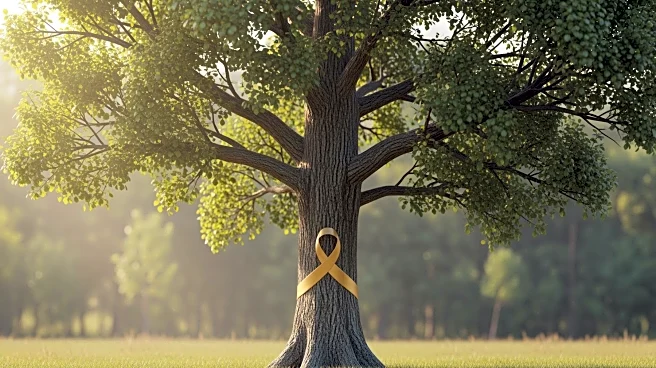What's Happening?
Denver Broncos linebacker Alex Singleton recently underwent surgery for testicular cancer, following a diagnosis last week. Singleton shared the news publicly on social media, expressing gratitude towards his doctors, the Broncos organization, his agent,
and his wife for their support. The 31-year-old athlete revealed that he had elevated levels of the hormone hcG in his system, detected during a random drug test, which led to further medical consultations. After an ultrasound confirmed the diagnosis, Singleton proceeded with surgery. Despite the health scare, Singleton remains optimistic about his recovery and anticipates returning to the field soon. He has been a key player for the Broncos, leading the team with 89 tackles in 10 games this season.
Why It's Important?
Singleton's diagnosis and subsequent surgery highlight the importance of regular health screenings and early detection in managing serious health conditions like cancer. His decision to share his personal health journey publicly may encourage others to pay closer attention to their health and seek medical advice when necessary. Singleton's leadership on the field and his proactive approach to his health could serve as an inspiration to both his teammates and fans. The Broncos will need to adjust their defensive strategies temporarily in his absence, but Singleton's expected return could bolster the team's performance in upcoming games.
What's Next?
Singleton is awaiting additional test results to confirm the success of the surgery and his overall prognosis. He plans to return to the field in the coming weeks, depending on his recovery progress. The Broncos organization will likely continue to support Singleton through his recovery, while also preparing for his return. Fans and teammates may rally around Singleton, offering support and encouragement as he navigates this challenging period. The team's medical staff will monitor Singleton's health closely to ensure a safe and timely return to play.
Beyond the Headlines
Singleton's public disclosure of his health condition may raise awareness about testicular cancer, particularly among athletes and young men who are at higher risk. His experience underscores the importance of addressing health concerns promptly and the potential impact of early detection on treatment outcomes. Singleton's story could lead to increased advocacy for cancer awareness and prevention within the sports community.















